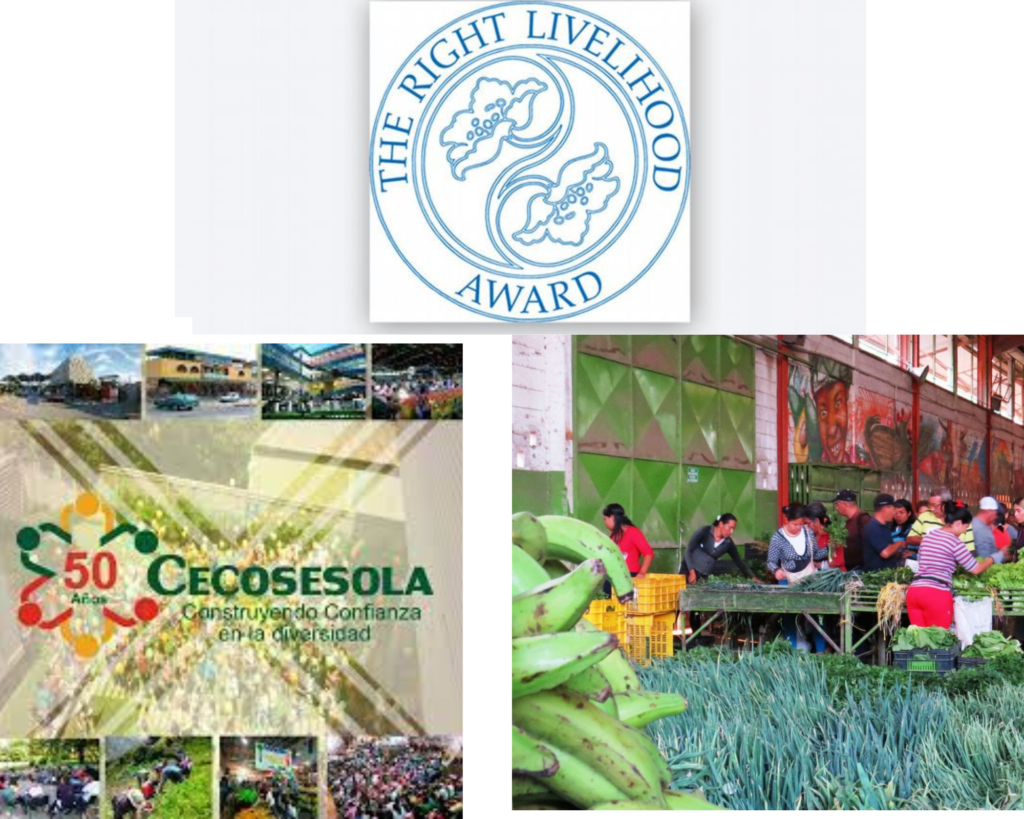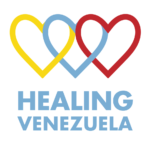Below is a summary of what we did during the third quarter of this year. Many thanks to all our supporters to make these achievements possible.
Organisational changes
To better manage the challenges of a growing organisation in a more complicated international context, some changes were made during Q3. Rupert Pennant-Rea, our first Chairman of Healing Venezuela, has joined Lord Nigel Crisp and Prof Michael Adler MBE as one of our Patrons. Cinzia De Santis is the new Chair, and Gabriela Mendoza is the CEO. Added to this, we have also expanded our team in Venezuela with Cecilia Cordova as our Chief Operating Officer in charge of the operations and as a support to Dr Andres Ortiz, our Senior Medical Officer, who will continue to oversee our activities. Also in Venezuela, we have hired a part-time staff, Miglene Lopez, National Project Coordinator for closer monitoring and follow-up of the projects. In the UK, we welcomed a new Management Accountant, Ms Thania Cao, and have hired a part-time administrator, Mayra Sánchez, who supports us with admin matters, events, social media and fundraising. All are volunteers except Ms Lopez and Ms Sanchez, who volunteer too for some extra activities.
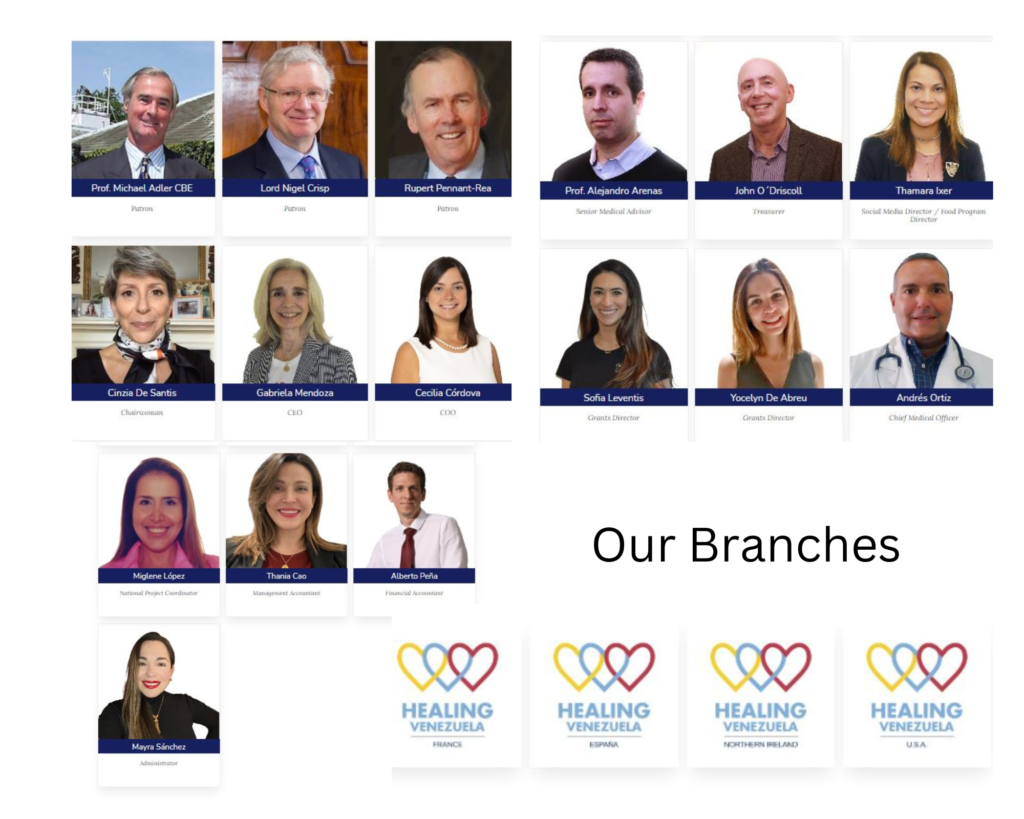
Food programme
“I don´t know what I would do without Healing Venezuela”. These were the words of a young mother of three children at risk of malnutrition before joining Healing Venezuela´s food programme. Today, her children and many others are thriving in a country where 12% of the population is at risk of severe malnutrition. We keep track of progress made by children taking quarterly anthropometric measurements. During Q3, around 60,000 meals were provided to school children from low-income families in La Vega (a neighbourhood in Caracas) and Guaraunos, a village in Sucre state keeping track of children’s growth on a quarterly basis.
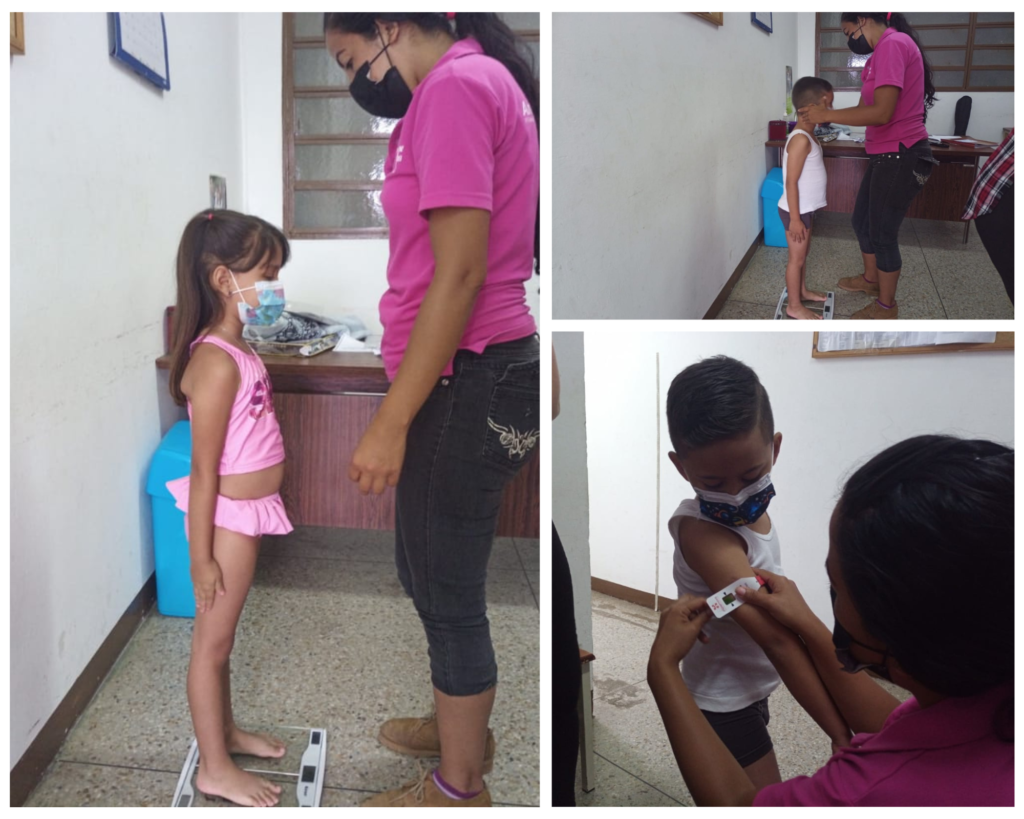
Junior doctors
Dr Indira Portillos is one of the beneficiaries of our Junior Doctor scholarship programme. She uses the cash we transfer from Healing Venezuela to buy food for herself and her two children. Without our support, she says, she wouldn´t be able to continue her training. What makes our sponsorship programme crucial is that with the exodus of specialists (around 40% have left Venezuela since the beginning of the crisis), Junior Doctors are at the forefront of medical care for low-income patients in Venezuela. On average, a junior doctor treats 100 patients per month, which means that during Q3, this programme benefited around 39,000 people from the poorest backgrounds.
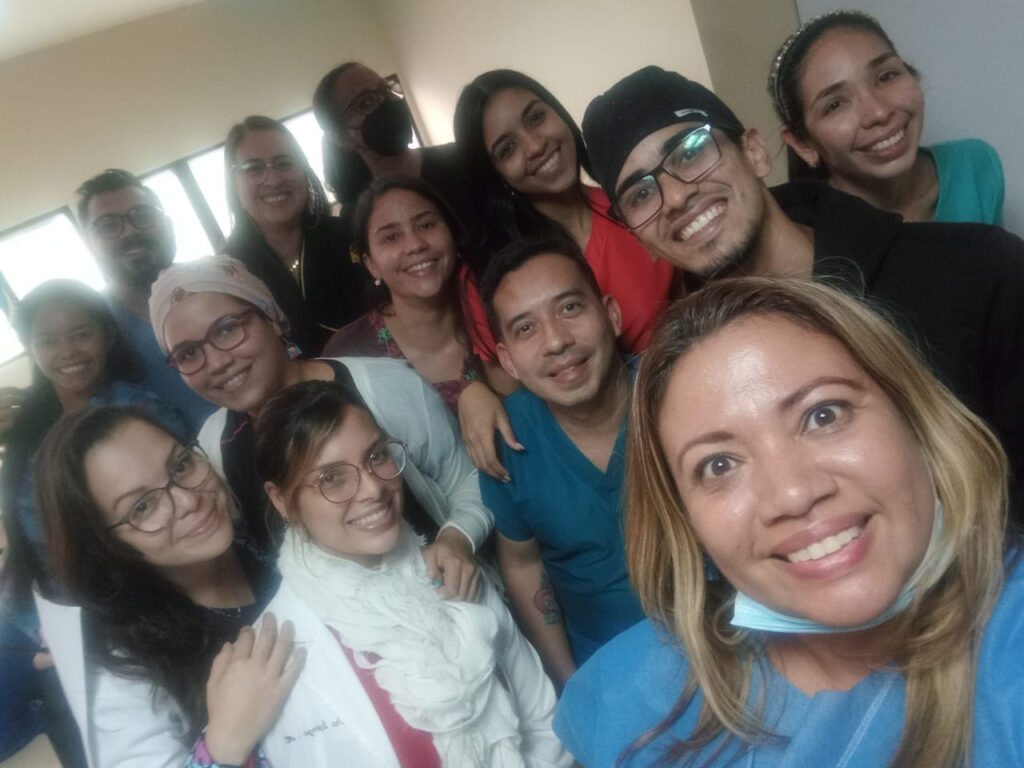
Infrastructure
Water quality in Venezuela is very poor, and for that reason, many patients in state hospitals, especially babies and elderly people, die of infections from water-borne bacteria. Since 2019, we have been installing water treatment plants in kitchen hospitals and carrying on the maintenance regularly. During Q3, 1,296 litres of clear water to prepare healthy food in 3 state hospitals and more than 300 people benefited from the equipment we repaired or donated to state hospitals.
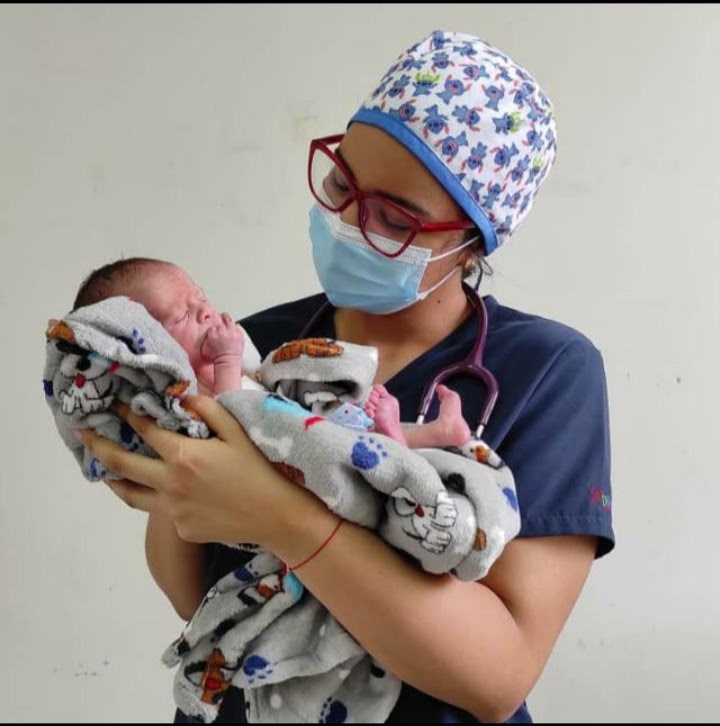
Awareness
We continued working with the Office of International Migration of the United Nations (IOM-UN) to identify synergies and maximise efficiency amongst humanitarian diaspora organisations. The second phase of this project started in July, and we are already discussing with other international bodies for further collaboration. Healing Venezuela was one of 14 NGOs included as an example of best practice in a manual created by DEMAC, an international outfit for diaspora engagement.
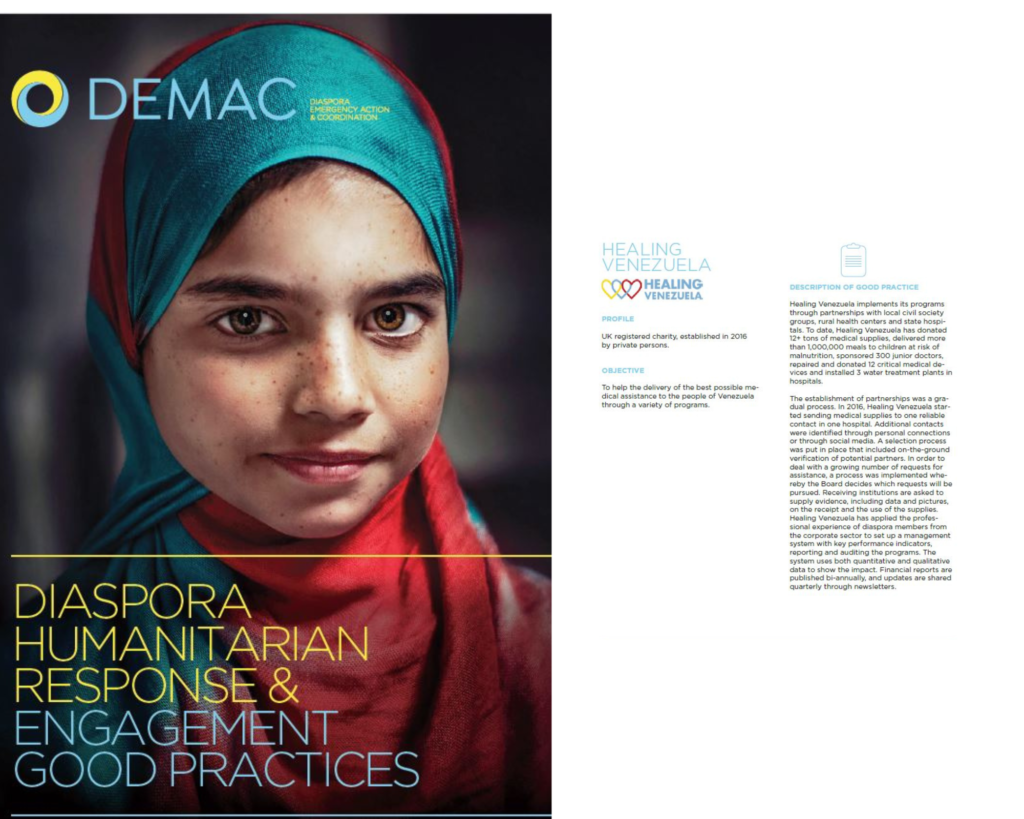
How we did it
We keep working hard to finance our programmes. Baking, cycling, dancing, we do it all to raise funds. We also had our annual summer gathering in the Cotswolds, an opportunity to share with our volunteers and their families (including pets!). Most recently, we joined efforts with other NGOs and Global Giving in a fundraising initiative to celebrate Arepa (Venezuelan staple food) Day on the 9th of September.
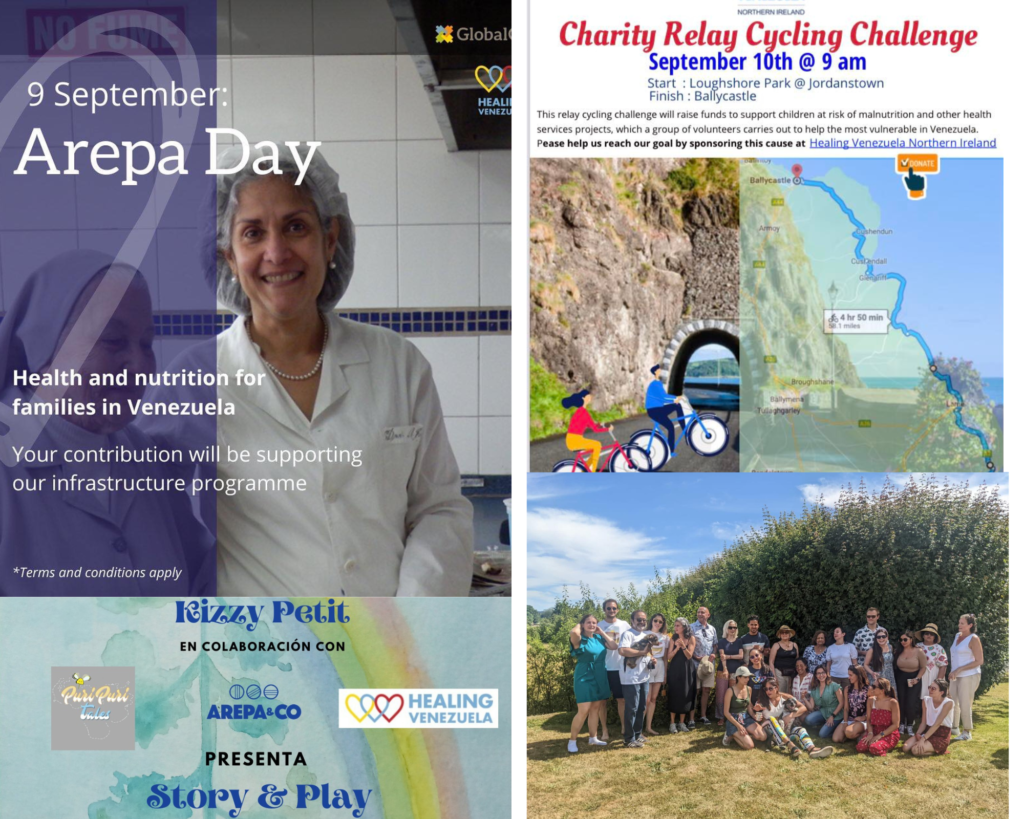
Celebrating positive things about Venezuela
We were elated to learn that CECOSESOLA(Central de Cooperativas de Lara) – a Venezuelan network of community organisations from low-income areas – has won the 2022 Right Livelihood Award also known as the Alternative Nobel Prize. CECOSESOLA is a unique example of a federation of co-operatives that has developed distinct systems based on communal values. Since 1967, they have been supporting more than 100,000 families across seven Venezuelan states. We take the opportunity to congratulate CECOSESOLA! We all need to learn from you!
